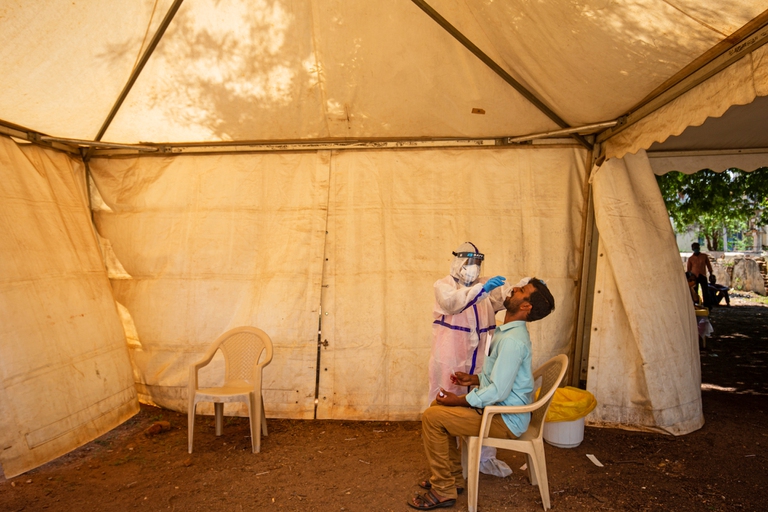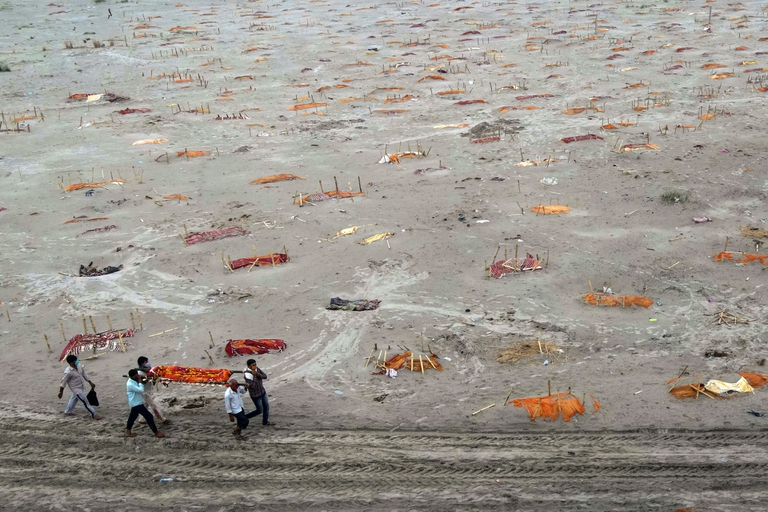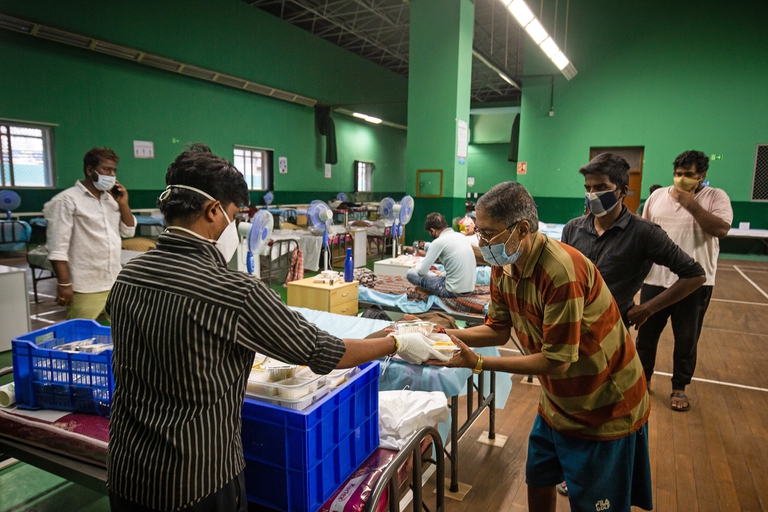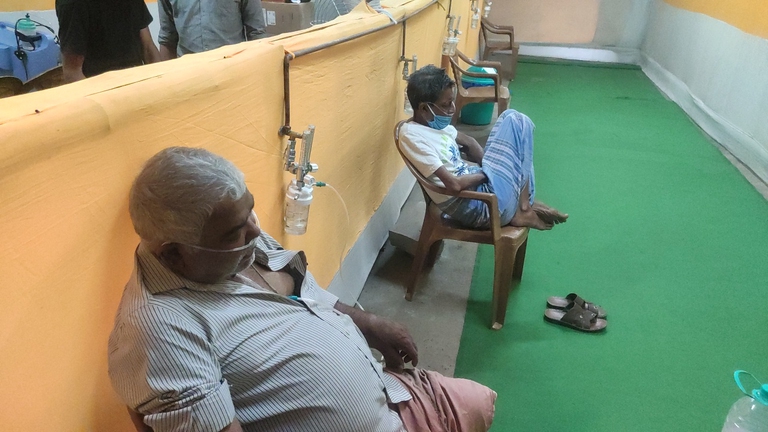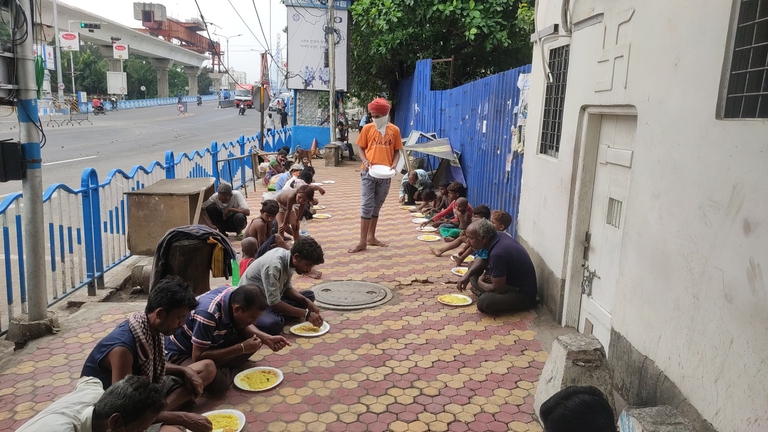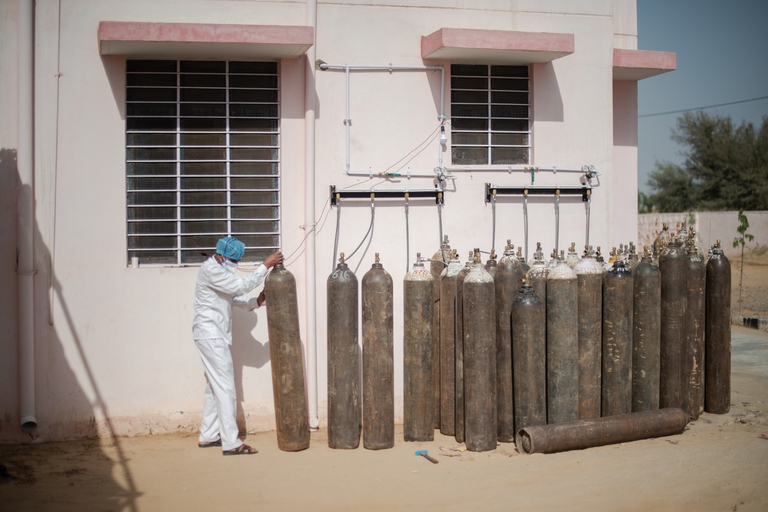
The second wave of the Covid-19 pandemic has shone a painful spotlight on the dire conditions of tea garden workers struggling against poverty in India.
In response to a lack of public services, organisations and individuals are helping citizens weather the devastating Covid-19 crisis in India.
Serious and laudable efforts are being made by citizens, private organisations and non-profits providing assistance and solidarity as India continues to struggle with a devastating surge in coronavirus cases. The second wave of pandemic started in the spring of 2020, a year after the first wave forced the country to shut down completely.
India is currently the global epicentre of the pandemic, recording 28 million Covid-19 cases – second only to the United States – and losing over 326,000 lives so far. Furthermore, experts believe actual casualties to be much higher due to the underreporting of deaths that take place in homes.
In this context, the government has faced severe criticism for its perceived ineptness in handling the crisis. Shortages of oxygen, hospital beds and vaccines have been blamed for the high casualty rate of India’s second wave, with long queues forming outside of public and private medical facilities as people seek urgent help. Furthermore, there’s little respite even for those who have lost their loved ones, as packed crematoriums and shortages of wood have made it difficult to put them to rest.
The crisis has dented the image of Indian Prime Minister Narendra Modi, with people expressing their anger over the inadequacy of health infrastructure, especially in rural areas, where over 65 per cent of Indians live. In response, many individuals and groups have undertaken actions big and small to help communities weather the crisis.
It has been barely a month since Sobhan Mukherjee lost his mother to a sudden heart attack. But not even this tragic incident stopped him from discharging his duty towards society. The 24-year-old, who lives in Kolkata, the capital of the state of West Bengal, customised his friend’s car into an ambulance to transport suspected Covid-19 patients to hospital.
“I can’t sit at home to mourn my loss as the current situation demands action,” says Mukherjee, popularly known as the “padman” of Kolkata for distributing sanitary napkins to women. “I was receiving several calls every day from people desperately searching for ambulances, as several vehicle owners are trying to make cash out of the situation by overcharging them. I decided to do something. I turned my friend’s car into an ambulance by keeping an oxygen cylinder for critical patients. I also took training to use it”.
We charge just fuel expenses for taking patients to the nearest health facilities. We’ve shifted several patients to hospital in the past month and have managed to save lives.
In parallel, Raj Kumar, a rickshaw driver in Delhi, India’ capital, has turned his rickshaw into an ambulance to ferry people to and from hospital – wearing protective gear while carrying such the noble work. Similarly, dozens of other rickshaw drivers have followed Kumar’s example by transforming their vehicles into nimble ambulances at patients’ disposal.
Mukherjee and Kumar are just two among the many Good Samaritans in India who have been working tirelessly to offer medical assitance, food and other essential services to those badly hit by the virus.
The high number of casualties in India has been linked to the severe shortage of oxygen and hospital beds for Covid-19 patients. To fill this void, private organisations and even entrepreneurs have chipped in to bridge the gap.
Several humanitarian organisations have been providing free oxygen concentrators to patients. Khalsa Aid, an international non-profit, has so far distributed 300 oxygen concentrators for free in Delhi. They aim to provide 5,000 such life-saving machines across India.
Around 250 entrepreneurs in the city of Gurgaon, the financial and technology hub in the northern city of Haryana, imported oxygen concentrators from China through a crowdfunding campaign. They’ve also offered 617 oxygen concentrators to Uttar Pradesh state in northern India, creating the Mission Oxygen campaign to ensure the regular supply of oxygen in areas that are far from production plants.
On its part, Entrepreneurs of Kolkata, a group of business individuals and startups, has set-up 500 beds in hospitals for Covid-19 patients.
Sikhs across India has been organising free langars (community kitchens) and oxygen langars to ensure that food and oxygen reach those who need them. “We started this initiative of offering free food when the lockdown was announced in March last year,” says Satnam Singh Ahluwalia, chairman of the Kolkata-based IHA foundation.
“We named it Langar on Wheels (food on wheels) and began distributing food to poor people and also to those patients’ kin who had come to the city for their relatives’ treatment but were struck here during lockdown. We also offer food to migrant labourers and daily wage owners, and have so far fed around 2.6 million people. Free oxygen is also being given to people needing it, as well as free refilling of oxygen cylinders. The expenses are being borne by donors and well-wishers”.
The LGBTQ community has also extended a helping hand by offering free food to their community members as well as others. “We’ve been cooking food in the house and distributing it among people who are suffering from Covid-19, while being careful to follow safety protocols,” says Ranjita Sinha, a trans woman who runs the Association of Transgender/Hijra in Bengal. “We’re trying to stand beside those people who have been abandoned by their family members after becoming infected with the virus. We’re serving everyone, regardless of their gender”.
The importance of social media can’t be ignored as it has acted as a vital bridge between those in need and those capable of helping them. Given the steady rise in digital media users in India – which have grown to around a third of the country’s population as per January 2021, a 21 per cent increase on the previous year – social media platforms such as Facebook, Twitter, WhatsApp and Instagram have become important tools for people in search of aid: messages on the part of those seeking immediate medical help are quickly passed from one group to another, playing a key role in the rapid distribution of medical services.
Three youths based in Maharashtra state formed a Facebook group, Citizens’ War Room, to share information about the availability of oxygen and beds in various hospitals across India. The trio has been identified as Chimay Patkar, Arbaaz Khan and Ankit Virdi, all in their late 20s.
“It was the brainchild of Chimay, who is a frontline doctor and was receiving several calls for oxygen and beds,” says co-founder Virdi. “We started the Facebook group at the end of April and have already helped around 300 people across India, out of the 1,000 requests received. We connect service providers with those in need”.
A similar kind of initiative is also being carried out by three teenagers from Meerut and Saharanpur, two cities in Uttar Pradesh. The trio – Avani Singh, Rishay Gupta and Ansh Garg – used two WhatsApp groups to connect volunteers and help those seeking hospital beds. “The first group was used for requests, while the second was for volunteers,” says Singh. “We forwarded the queries to volunteers groups who shared the leads with us. The response was then forwarded to the concerned person who had made the request. The entire process often took less than ten minutes”.
Initiatives by citizens, non-profits and other organisations have been fruitful in saving several lives, including by offering food to people who might have otherwise died of starvation. The government, however, needs to learn from the healthcare crisis and ensure that such a catastrophe is prevented in future. Better medical facilities coupled with adequate food arrangements will go a long way in polishing India’s image, which has suffered a severe blow in the second wave of the pandemic.
Siamo anche su WhatsApp. Segui il canale ufficiale LifeGate per restare aggiornata, aggiornato sulle ultime notizie e sulle nostre attività.
![]()
Quest'opera è distribuita con Licenza Creative Commons Attribuzione - Non commerciale - Non opere derivate 4.0 Internazionale.
The second wave of the Covid-19 pandemic has shone a painful spotlight on the dire conditions of tea garden workers struggling against poverty in India.
A study indicates that the zoonotic origins of coronavirus may have been favoured by global warming’s impact on the conditions for bat habitats.
While Africa’s Covid-19 response has been praised by some, the pandemic has triggered the continent’s first recession in 25 years.
In Coronation, a documentary filmed by the people of Wuhan, the dissident Chinese artist documents the government’s rigid control during lockdown.
David Nabarro of the WHO analyses worldwide actions against the pandemic. Lockdowns alone aren’t a sustainable response to stopping Covid-19.
Kenya may fail to meet its target of ending female genital mutilation by 2022 as Covid-19 school closures have seen more girls undergo the illegal practice.
Helsinki Airport has begun implementing a Covid-19 test which is both noninvasive and simple. The exceptional nurses involved are dogs.
The drop in air pollution during worldwide lockdowns helped prevent thousands of premature deaths. But the situation is returning to pre-crisis levels.
The pandemic threatens some of the world’s most endangered indigenous peoples, such as the Great Andamanese of the Andaman and Nicobar Islands in India.
